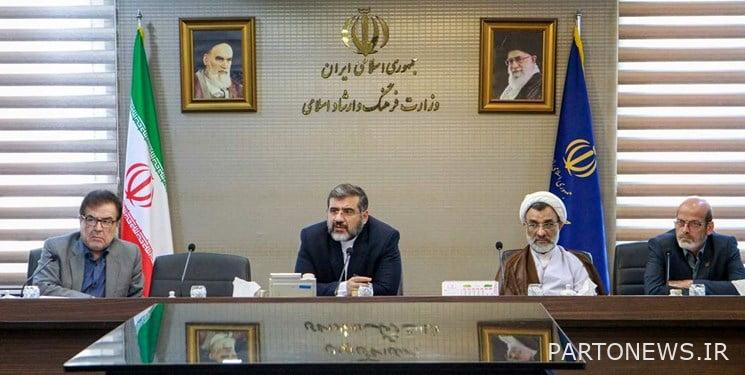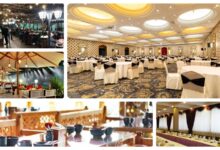The tax revenue of the art field is transferred to the art credit fund

The Minister of Culture and Islamic Guidance said: Transfer tax revenues related to the field of culture to the art credit fund in order to benefit all culture and art owners from these revenues and strengthen the support for artists in the seventh development program by creating a legal structure to deal with the violations of license holders. The ministry has two important measures of the government to reduce the problems of artists.
Charso Press: The latest meeting of the Art Council was held yesterday – Monday 29 Khordad – with the presence of Mohammad Mahdi Esmaili, Chairman of the Art Council, Hojjatul Islam Abdul Hossein Khosropaneh, Secretary of the Supreme Council of Cultural Revolution, Mohammad Hossein Imani Khushkho, Secretary of the Art Council and members of this council, at the Ministry of Culture and Islamic Guidance.
In this meeting, the Minister of Culture, referring to the approval of the regulations of paragraph “e” of note 9 of the budget law, said: based on these regulations, a specialized working group will supervise the spending of the revenues obtained from one percent of the expenses of state-owned companies and banks; In this way, 50% of these revenues will be spent with the approval of the working group, and the other 50% will be allocated to the art credit fund to be allocated to cultural, artistic, media and Quran projects approved by the working group.
Esmaili stated: In the matter of Clause L of Article 139 of the Direct Taxes Law, despite the increase in the ceiling of tax exemptions for artists, it was decided that the tax income of the art sector should be transferred to the Art Credit Fund so that the proceeds will be available to all members of the fund.
He added: Monitoring the total costs of social responsibilities was another issue that was approved by the government’s cultural commission and will soon be raised according to the government’s bill submitted to the parliament regarding the law of direct taxes to help strengthen cultural and artistic management in the country.
A member of the Supreme Council of the Cultural Revolution, referring to the presentation of the seventh development program by the government to the Islamic Council, said: among the important cultural clauses of this program, one can mention the issue of approving the cultural annex, strengthening the support for artists, and the formation of the preliminary and appeals committee as a legal structure. He mentioned the Ministry of Culture and Islamic Guidance to deal with the violations of all license holders.
In another part of his speech, the Minister of Culture described the cultural achievements of the President’s visit to Venezuela and noted: During this trip, the two sides signed a comprehensive five-year cultural plan. Also, Iran’s cultural consultation in Venezuela and Brazil will be opened soon to strengthen the footprint of the Islamic Republic of Iran in the South American region. The Cultural Week of the Islamic Republic will be held in Caracas this November at the same time as the Venezuelan Book Fair.
Referring to the Venezuelan government’s acceptance of the participation of the Islamic Republic in the production of paper in this country, Esmaili said: 400,000 hectares of land have been afforested in Venezuela, and soon, with the presence of Iranian experts in this country, the operational memorandum of the paper factory will be finalized.
He also mentioned the understanding between Iran and Venezuela to produce a joint movie about the transfer of fuel by sea and added: At the same time as Iranian ships docked in Venezuela and supplied fuel to this country in the most difficult conditions, Venezuelans held a national celebration and painted large murals to They assigned this event.
Hojjatul Islam Khosrupanah, the secretary of the Supreme Council of Cultural Revolution, also pointed to the revival of the art council in the popular government and said: The art council is one of the most important satellite councils of the Supreme Council of Cultural Revolution that has been revived in this government.
Recalling the positive interaction between the Secretariat of the Supreme Council of Cultural Revolution and the Ministry of Culture and Islamic Guidance, he asked the members of the Art Council to present a report on the performance and priorities of the Art Council in the hall of the Supreme Council.
It should be noted that in the meeting of the Art Council, the order “Civilizing Art Master Plan”, “Art Credit Fund Performance Report” and “Regulations for the Establishment and Supervision of Free Art Schools” were raised and discussed by the members of the Council.

